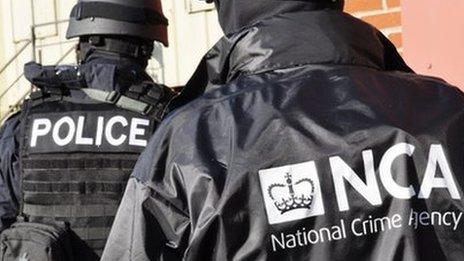Dozens arrested in cybercrime 'strike week'
- Published
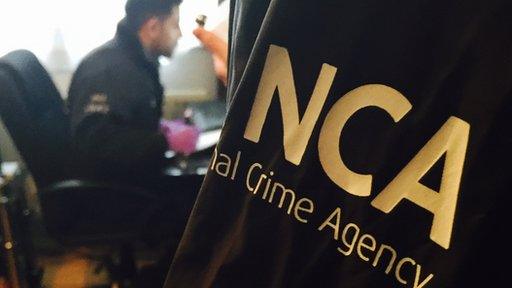
One raid led to the arrest of a man thought to be involved with an attack on Yahoo in 2012
The UK's National Crime Agency has arrested 56 suspected hackers as part of a "strike week" against cybercrime.
In total, 25 separate operations were carried out across England, Scotland and Wales.
Those arrested are suspected of being involved in a wide variety of cybercrimes including data theft, fraud and virus writing.
One raid the BBC witnessed targeted a man suspected of involvement in a 2012 hack attack on web giant Yahoo.
Stolen data
The week-long series of operations was co-ordinated by the NCA's National Cyber Crime Unit (NCCU) as well as specialist officers from regional organised crime squads and the Metropolitan Police.
West Midlands police arrested a 23-year-old man in Sutton Coldfield who is believed to have been involved in breaking into the network of the US defence department in June 2014.
Rory Cellan-Jones joined police on one of the cybercrime raids
The biggest operation saw the arrest of 25 people in London and Essex suspected of using the net to steal money, launder cash and carry out other frauds.
The hackers behind that attack stole contact information for about 800 people and data on the network's internal architecture was also pilfered.

Eyewitness: Rory Cellan-Jones, Technology correspondent
I was with one of the teams from the National Crime Agency as they carried out an arrest this week at a flat in north London. One group had tracked the suspect, a 21-year-old student, all the way back from university 40 minutes away.
The arrest had some of the drama of a classic police operation - "Go! Go! Go!" came the command over the walkie-talkie as we approached the suspect's flat. But no doors were kicked in, and there were no shouts of "You're nicked!" The priority was to make sure any computers were seized before they could be shut down or their data encrypted.
Teams arrived with equipment to gather data, and found a laptop and a desktop computer, both of them online. One officer was employed simply keeping her finger on the laptop's trackpad to make sure it didn't go to sleep. Later, police cyber-specialists would spend many hours examining exactly what was on the two computers.

The action also resulted in the arrest of people thought to be part of some well-known hacking groups.
In Leeds, a suspected member of the Lizard Squad group was arrested, and in London a 21-year-old man was taken into custody on suspicion of being part of the D33Ds Company hacking collective.
The D33Ds group is believed to have been behind a 2012 attack on Yahoo that stole more than 400,000 email addresses and passwords subsequently published online.
Phishing gangs
Investigations about suspects in Sutton Coldfield, Leeds and Willesden were aided by forensic information provided by the FBI.
The other actions targeted alleged phishing gangs, intellectual property thieves, users of financial malware, companies that offer hosting services to crime groups, and many people who took part in so-called DDoS [distributed denial of service] attacks in an attempt to knock websites offline.
One 21-year-old man from County Durham allegedly knocked out the Police Scotland website mounting such a DDoS attack.
"Criminals need to realise that committing crime online will not render them anonymous to law enforcement," said Andy Archibald, deputy director of the NCCU.
"It's imperative that we continue to work with partners to pursue and disrupt the major crime groups targeting the UK."
In addition, this week the NCA coordinated visits to 70 firms to inform them about how vulnerable their servers were to attack and how they could be used by cyberthieves to send out spam or act as proxies for other attacks.
The strike week also involved four forces setting up pop-up shops to give advice to the public about staying safe online and to get their devices checked to make sure they are free of malware and other digital threats.
- Published6 March 2015
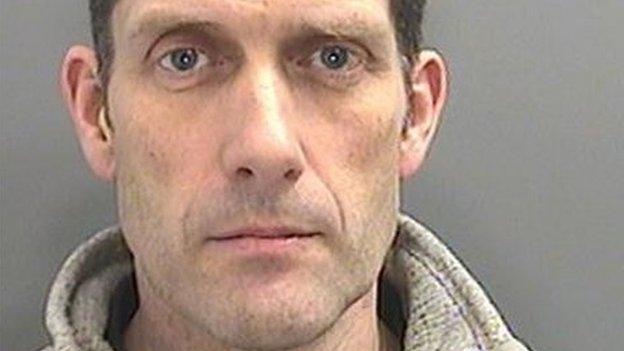
- Published25 February 2015
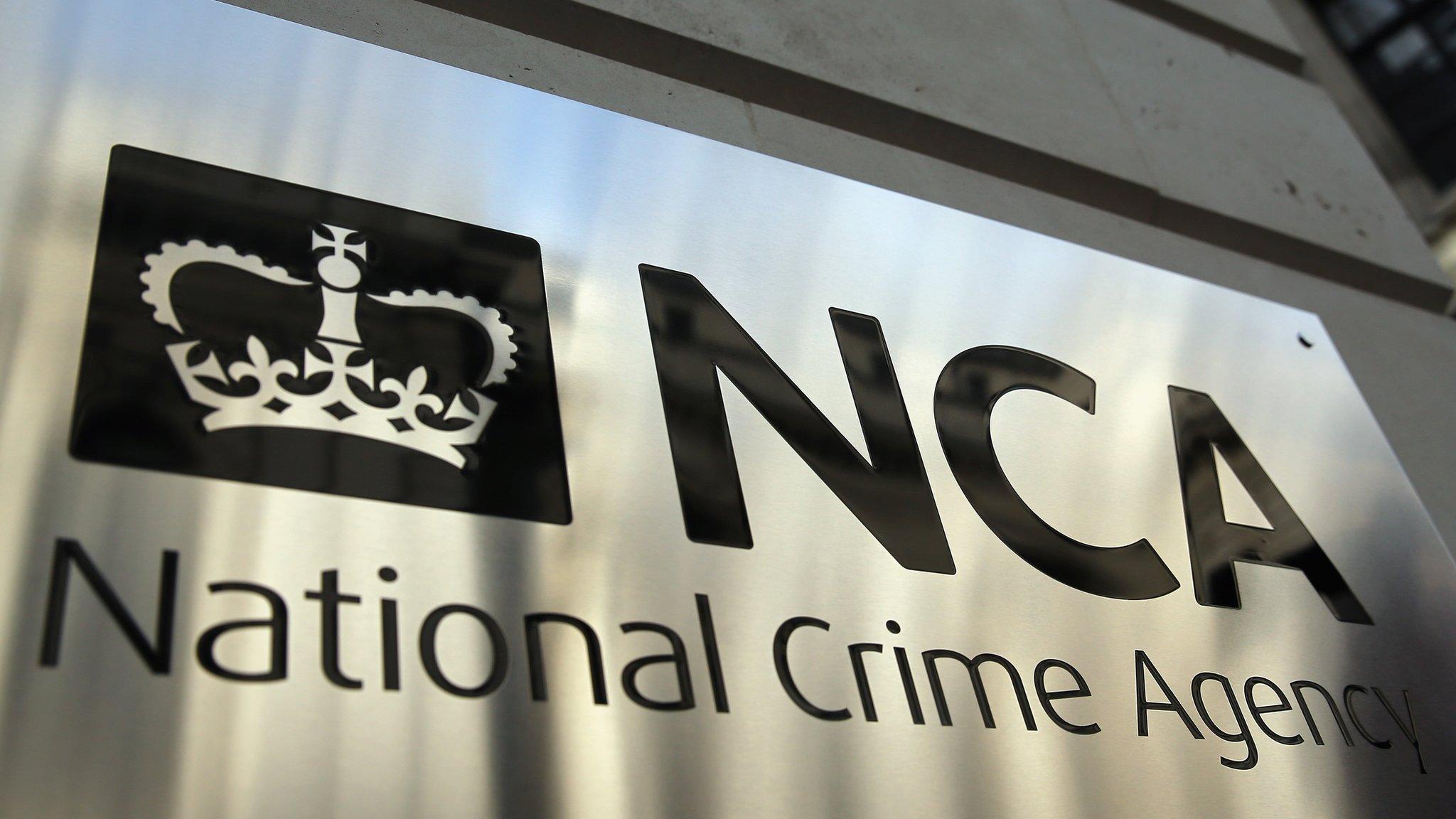
- Published21 November 2014
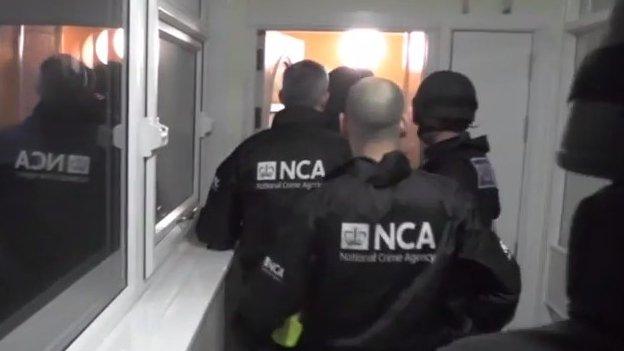
- Published10 July 2014
